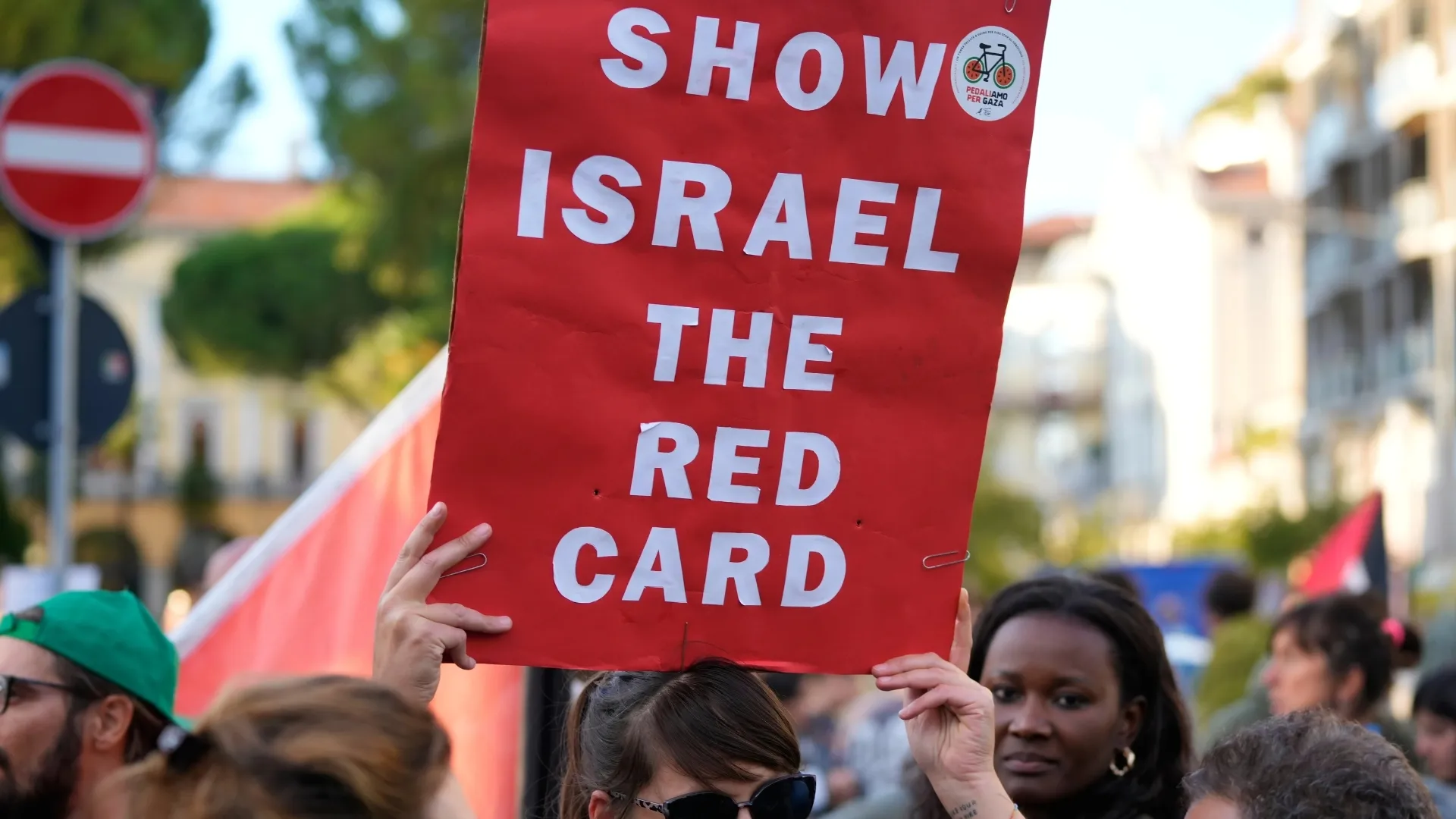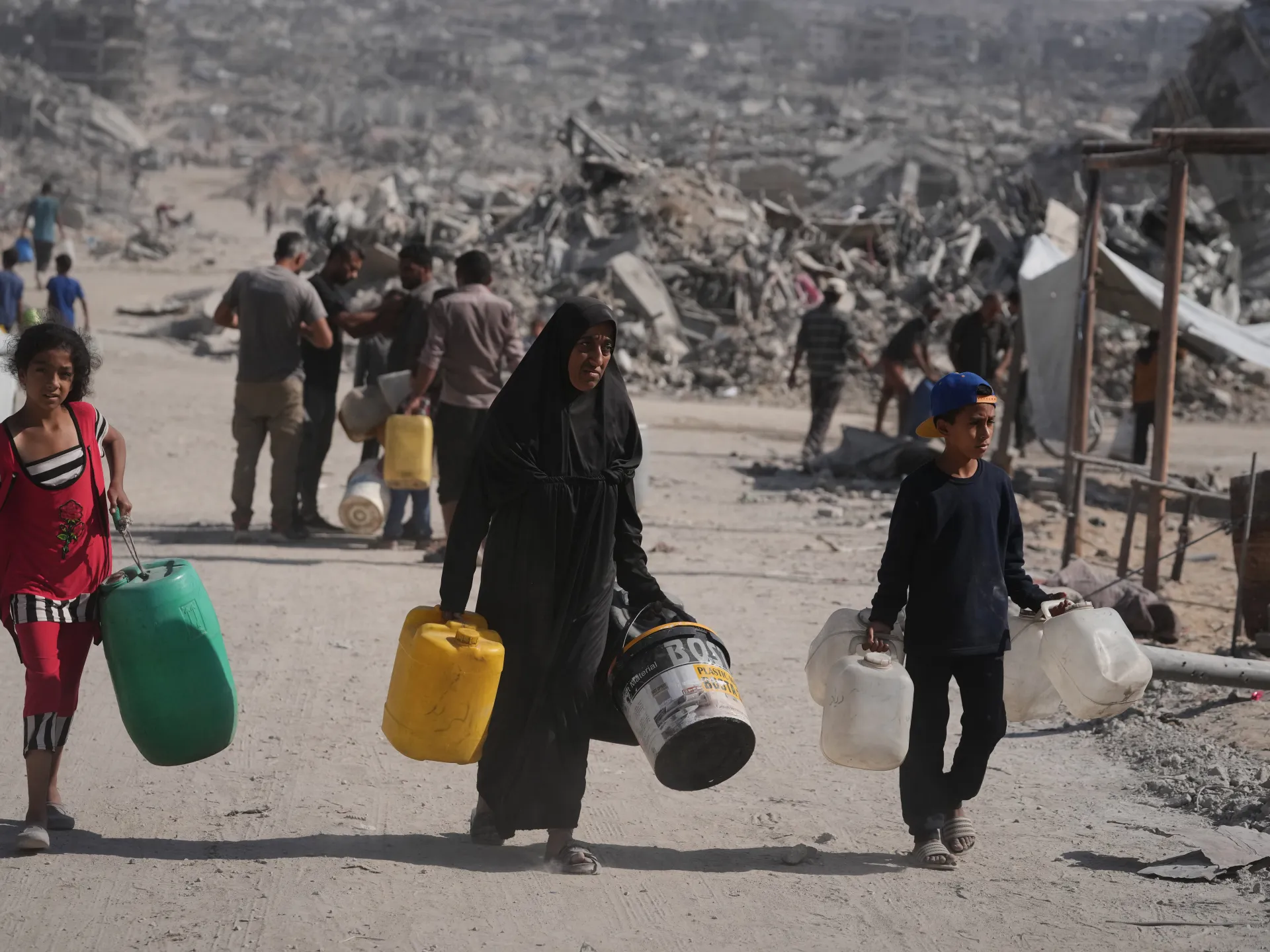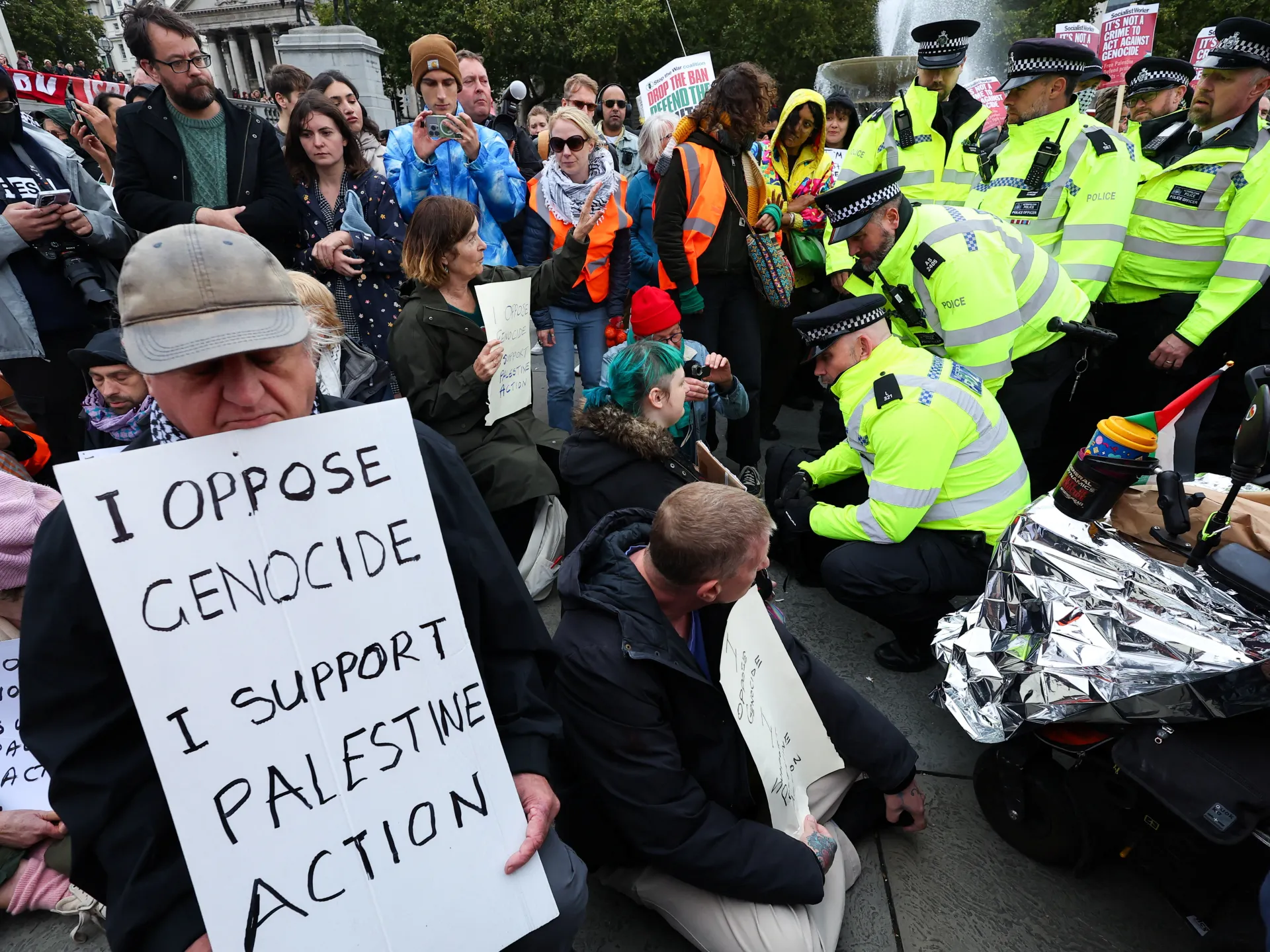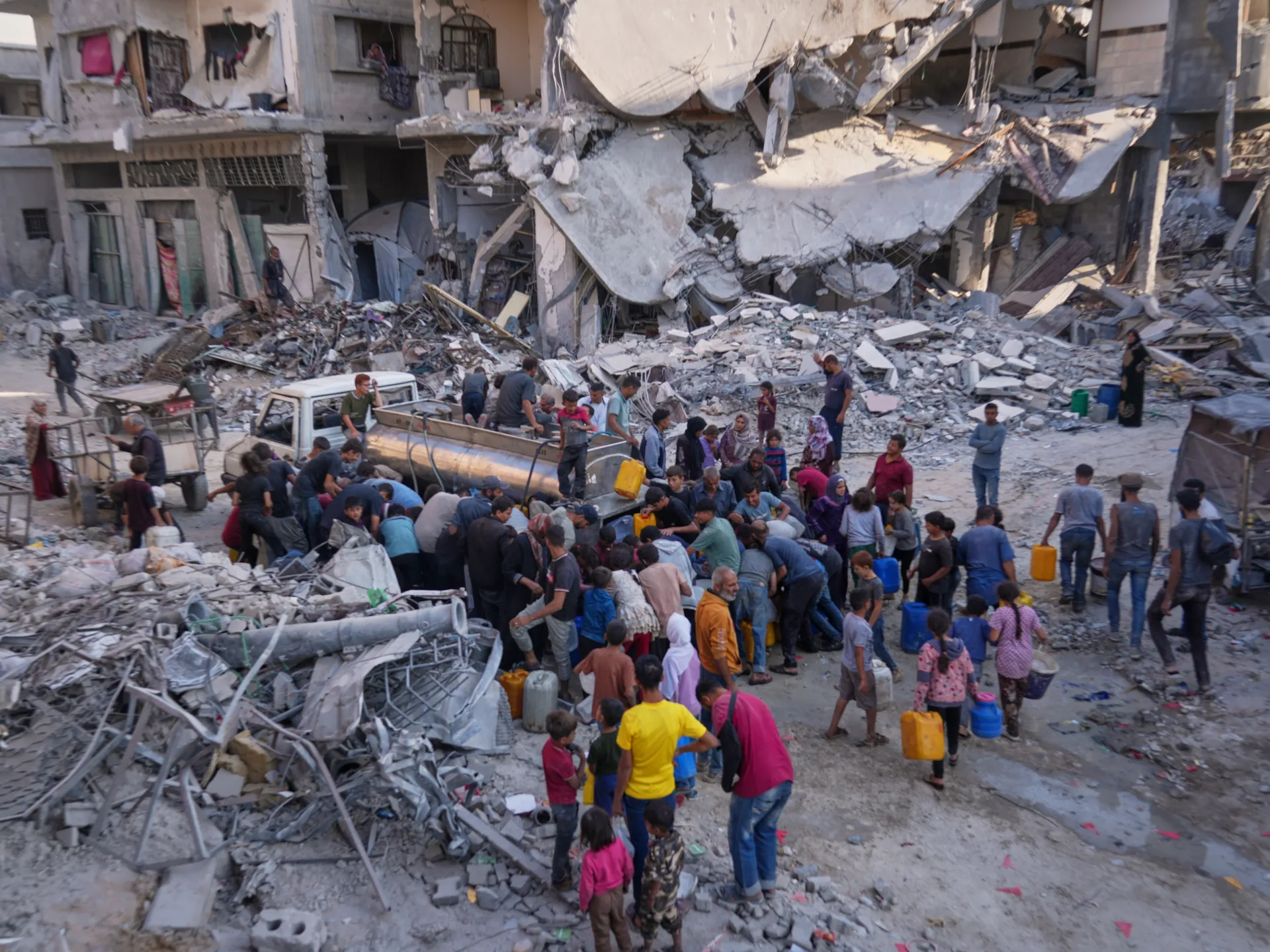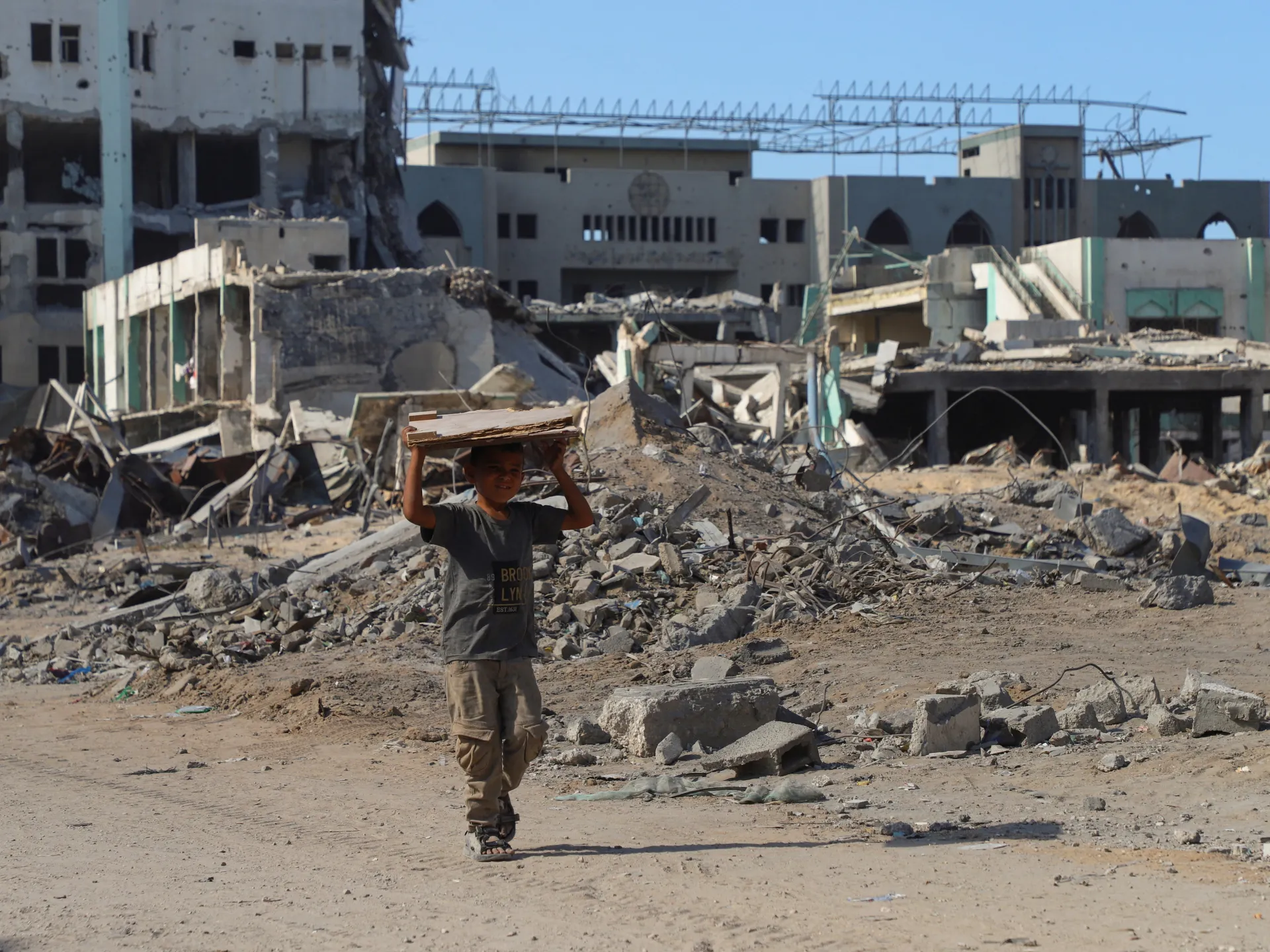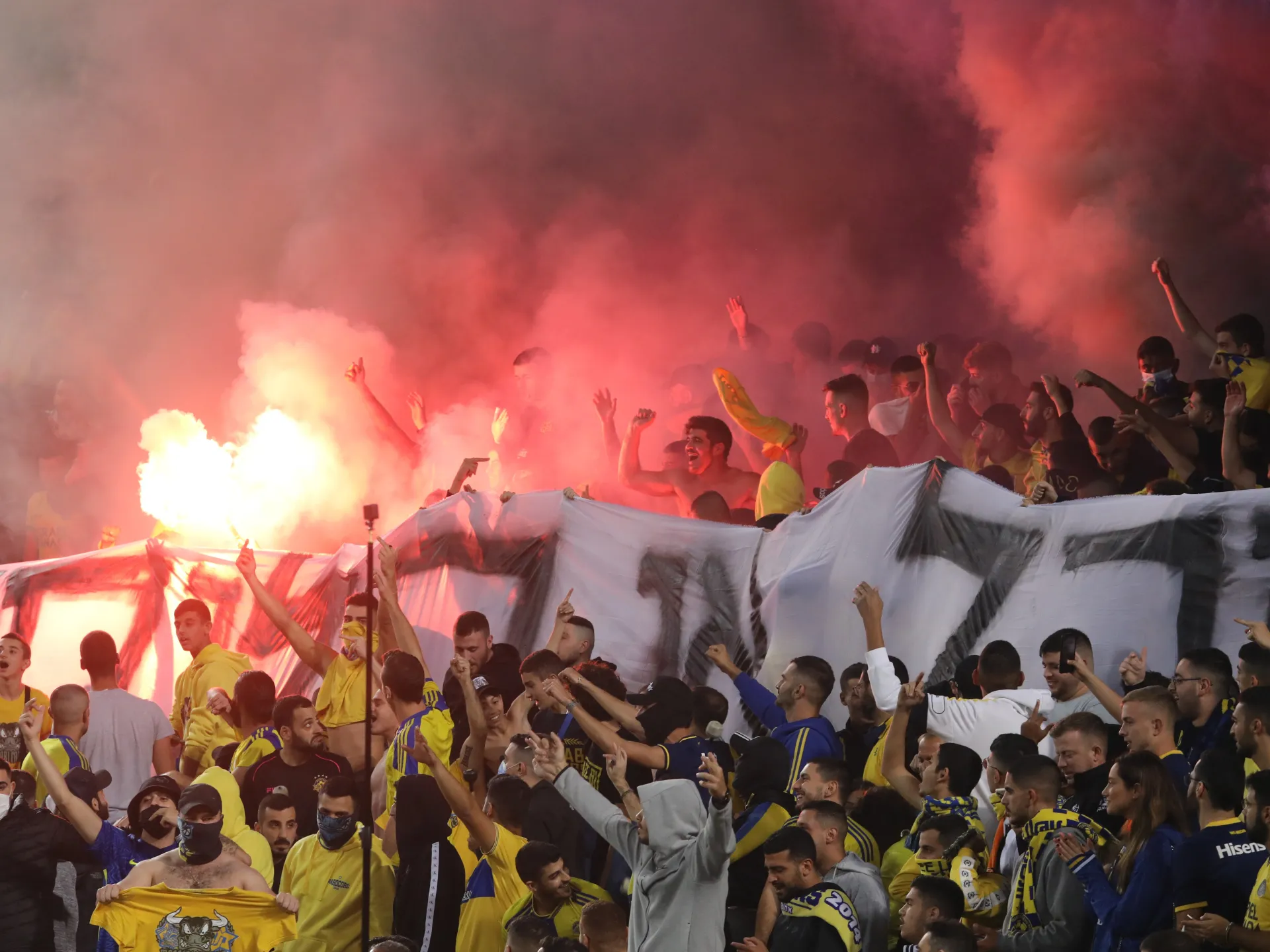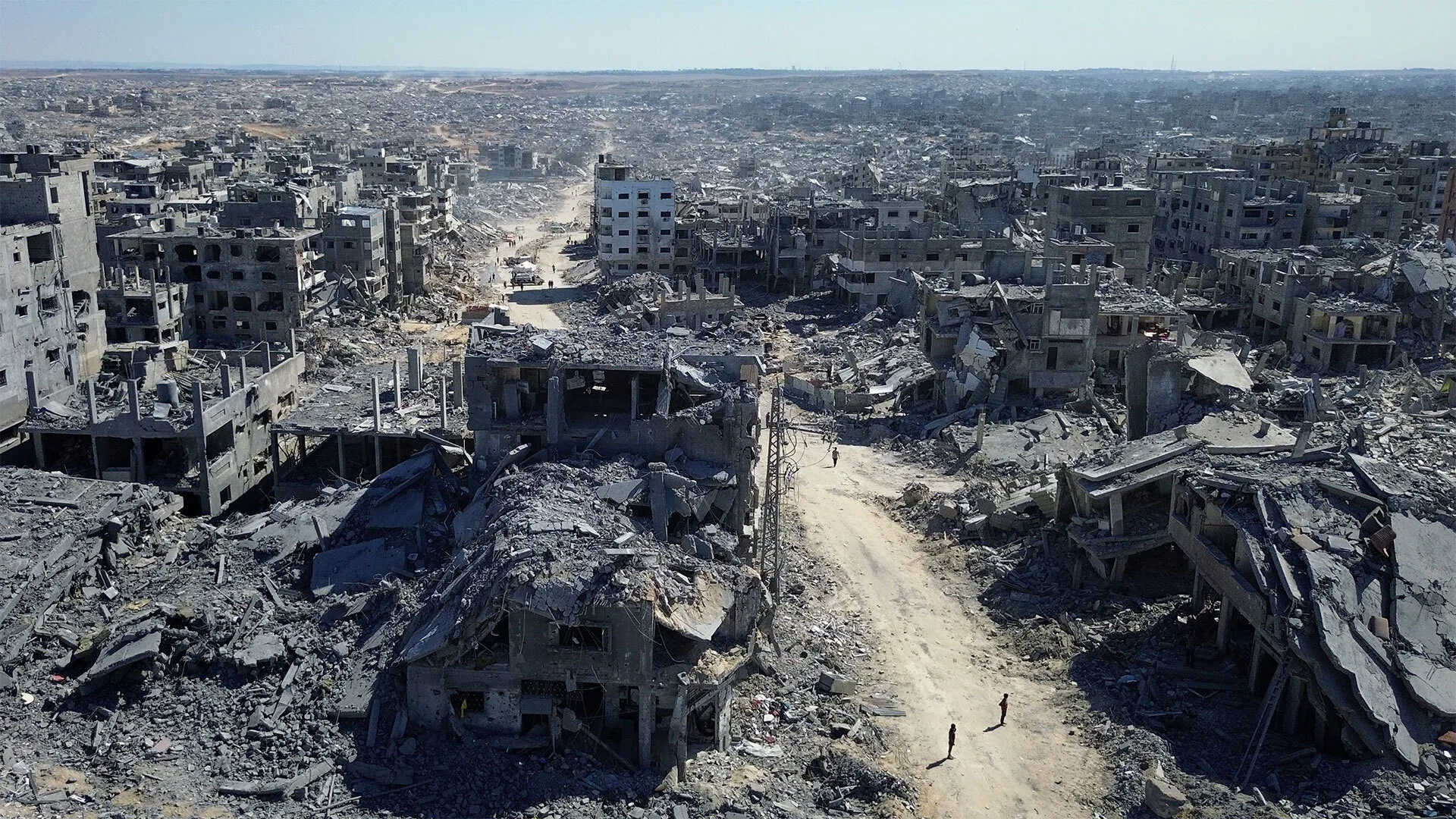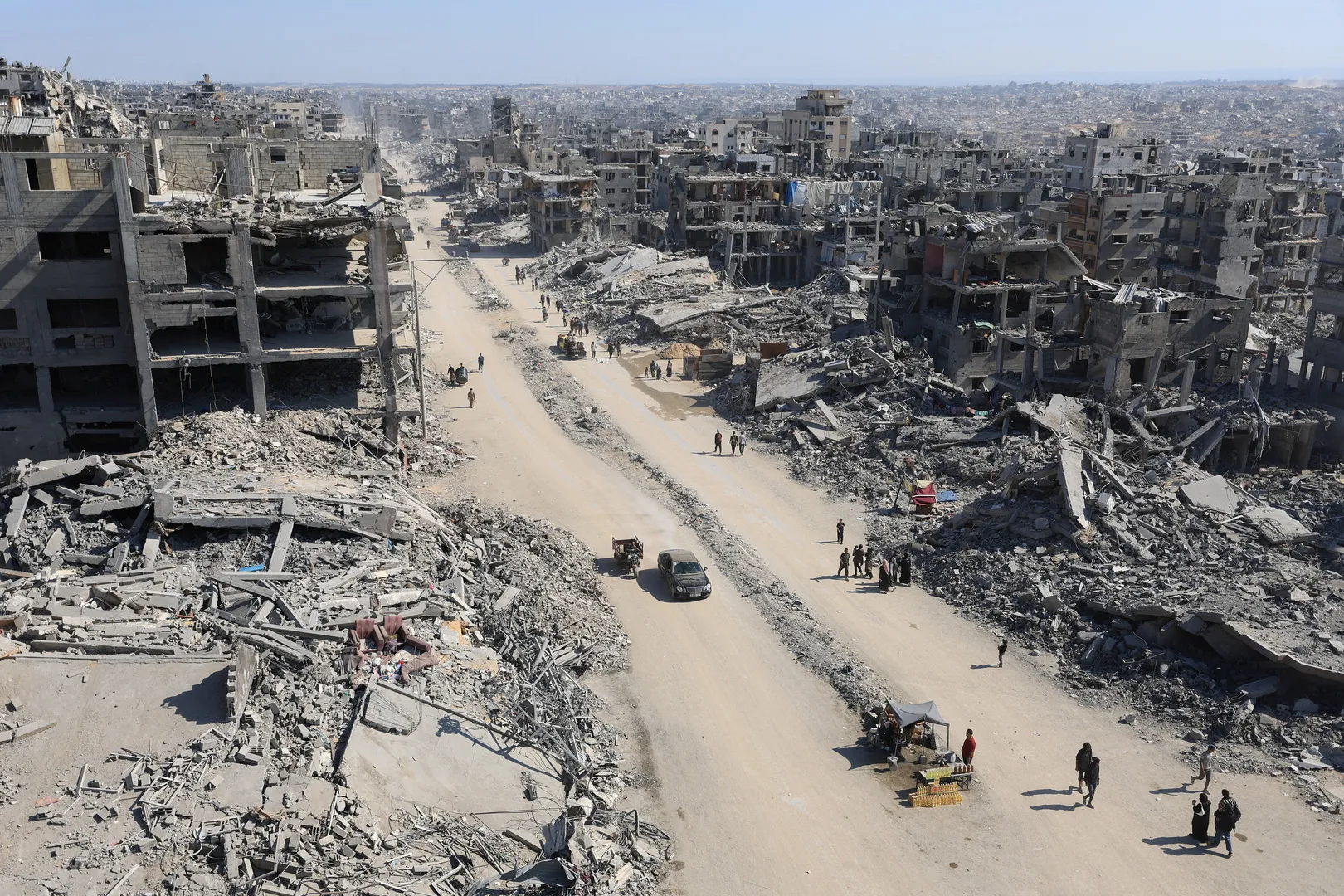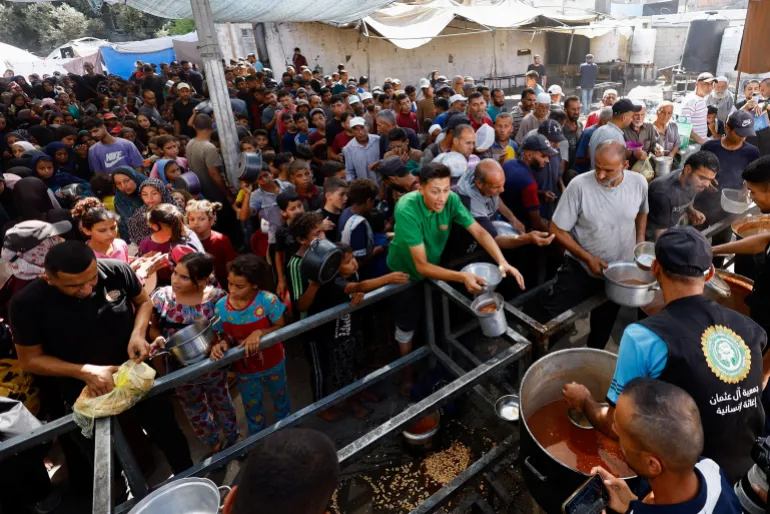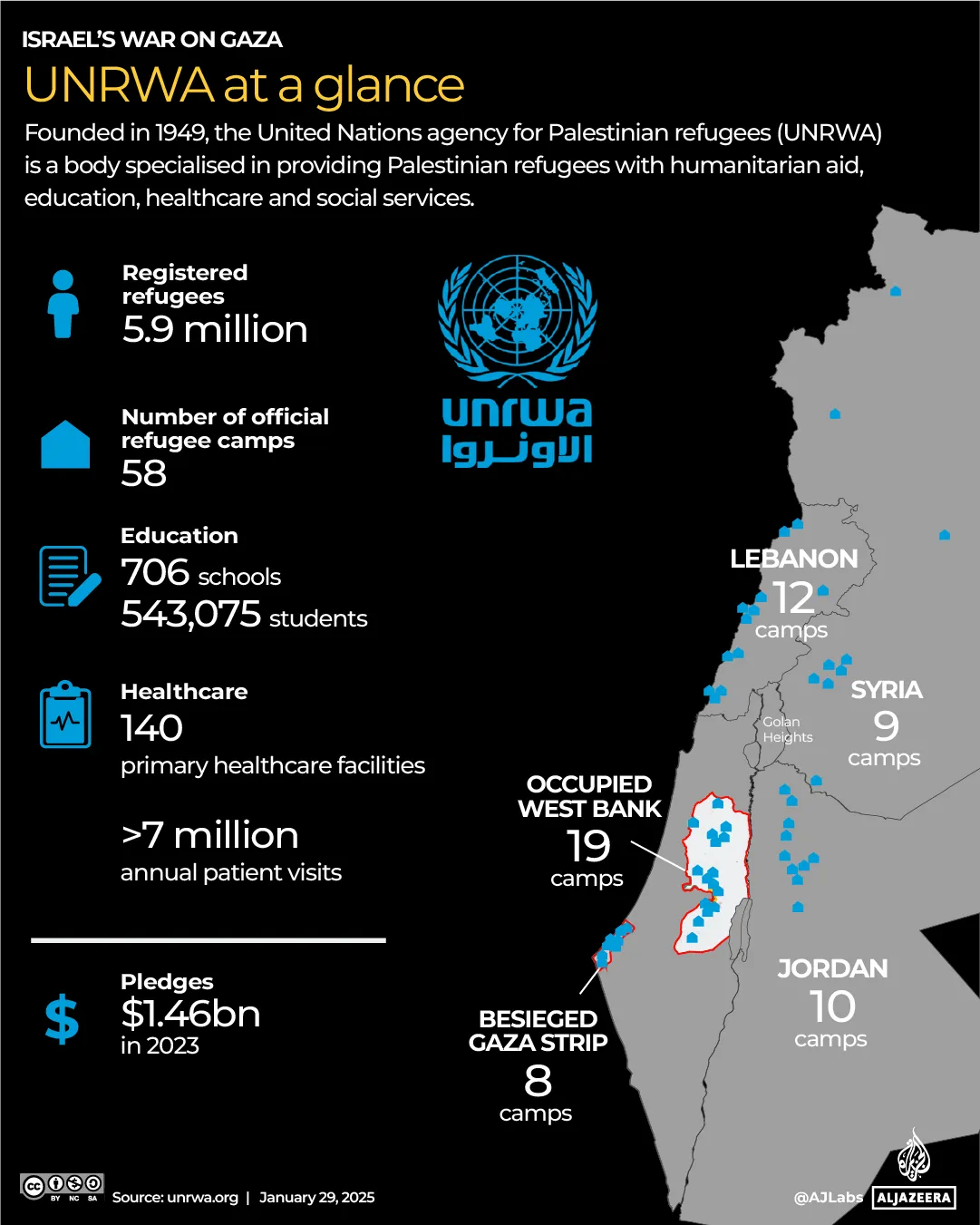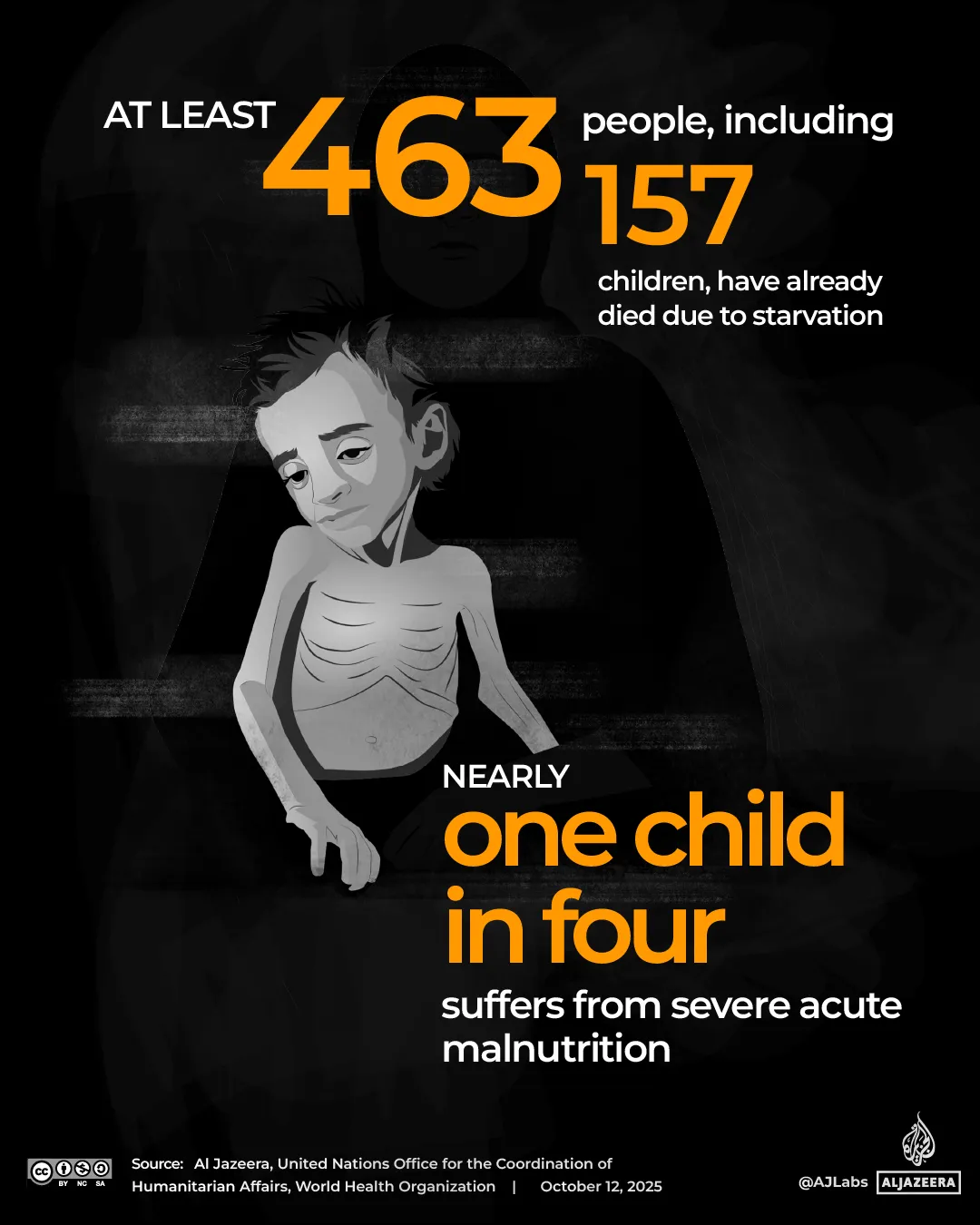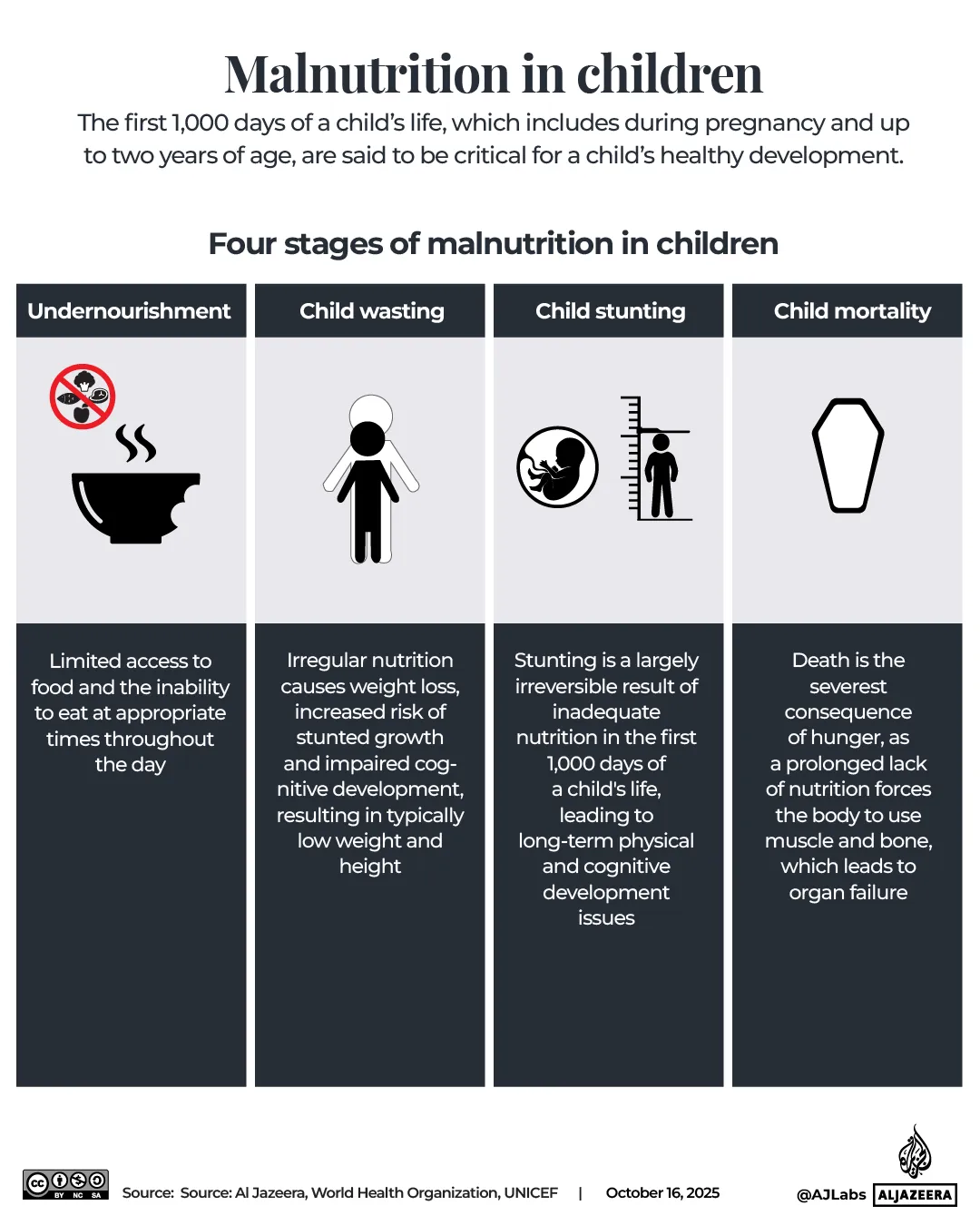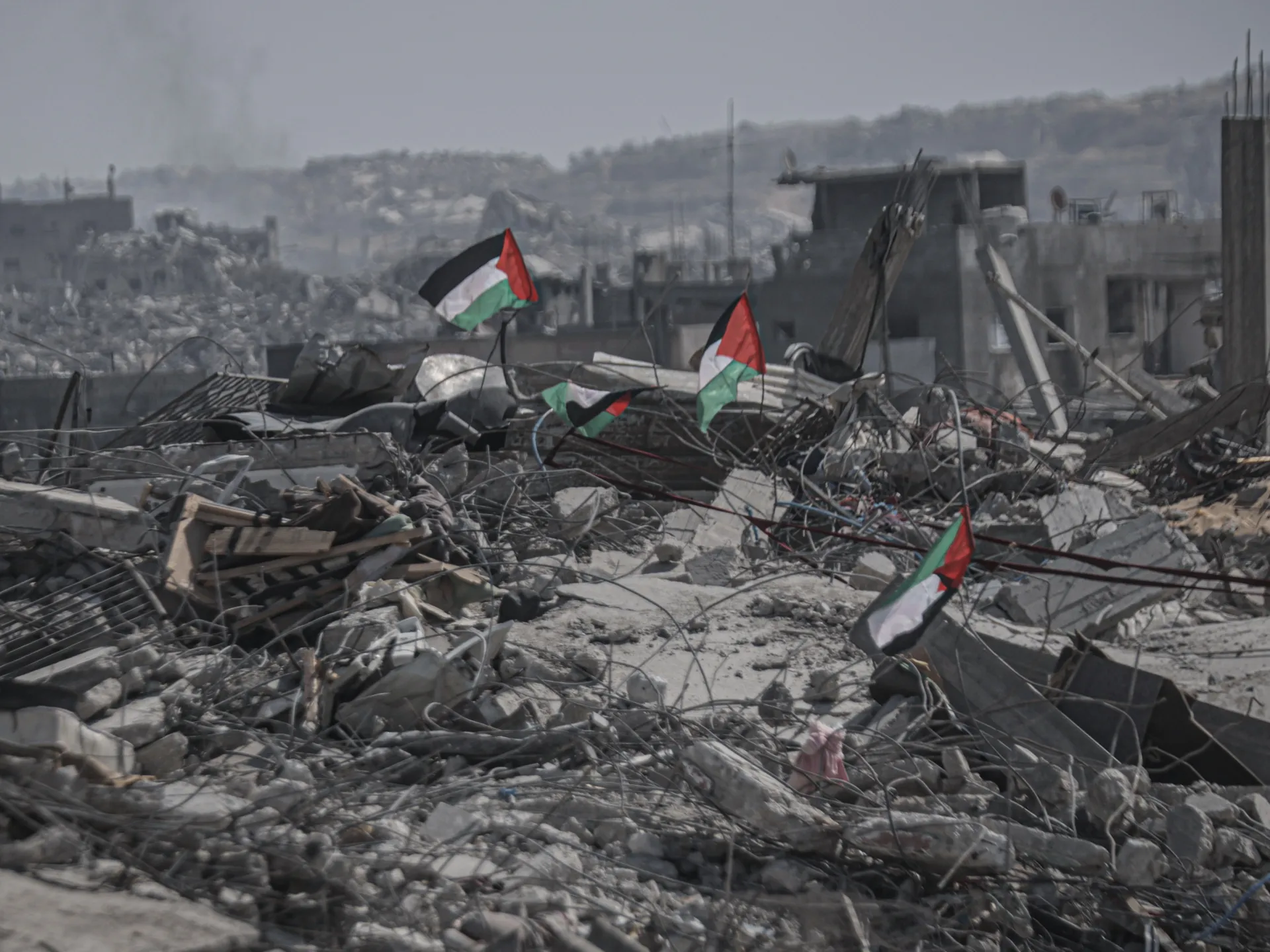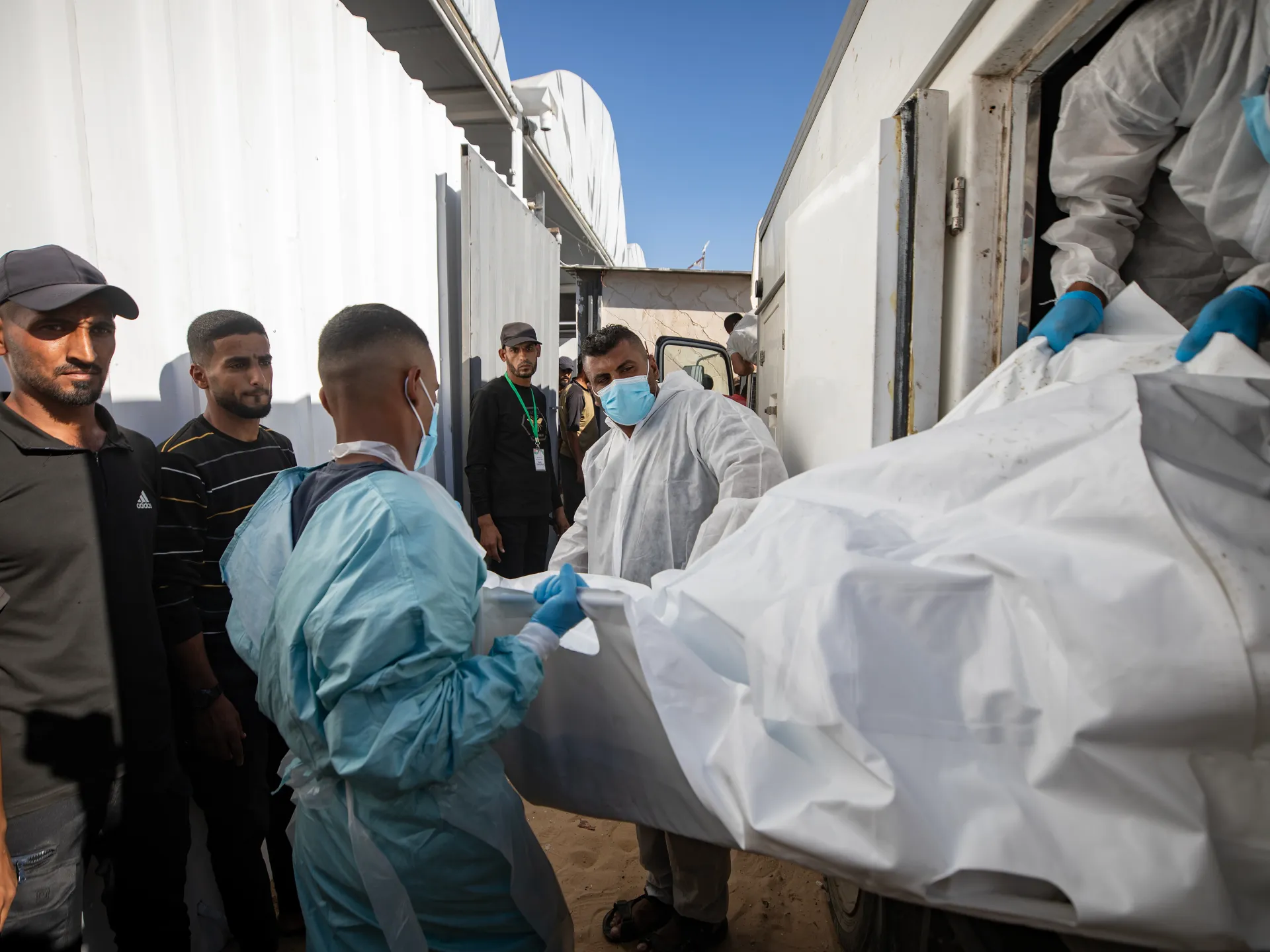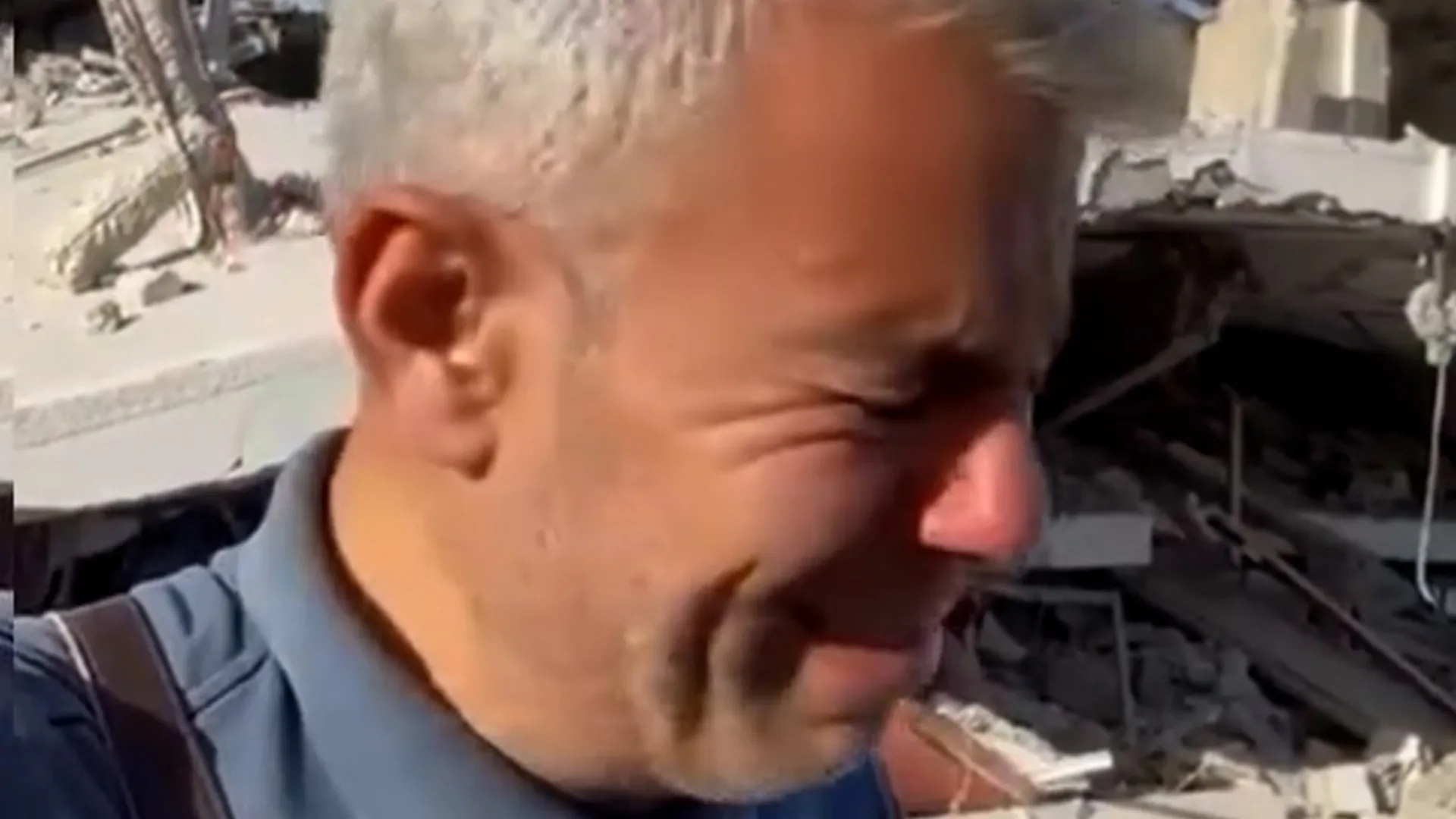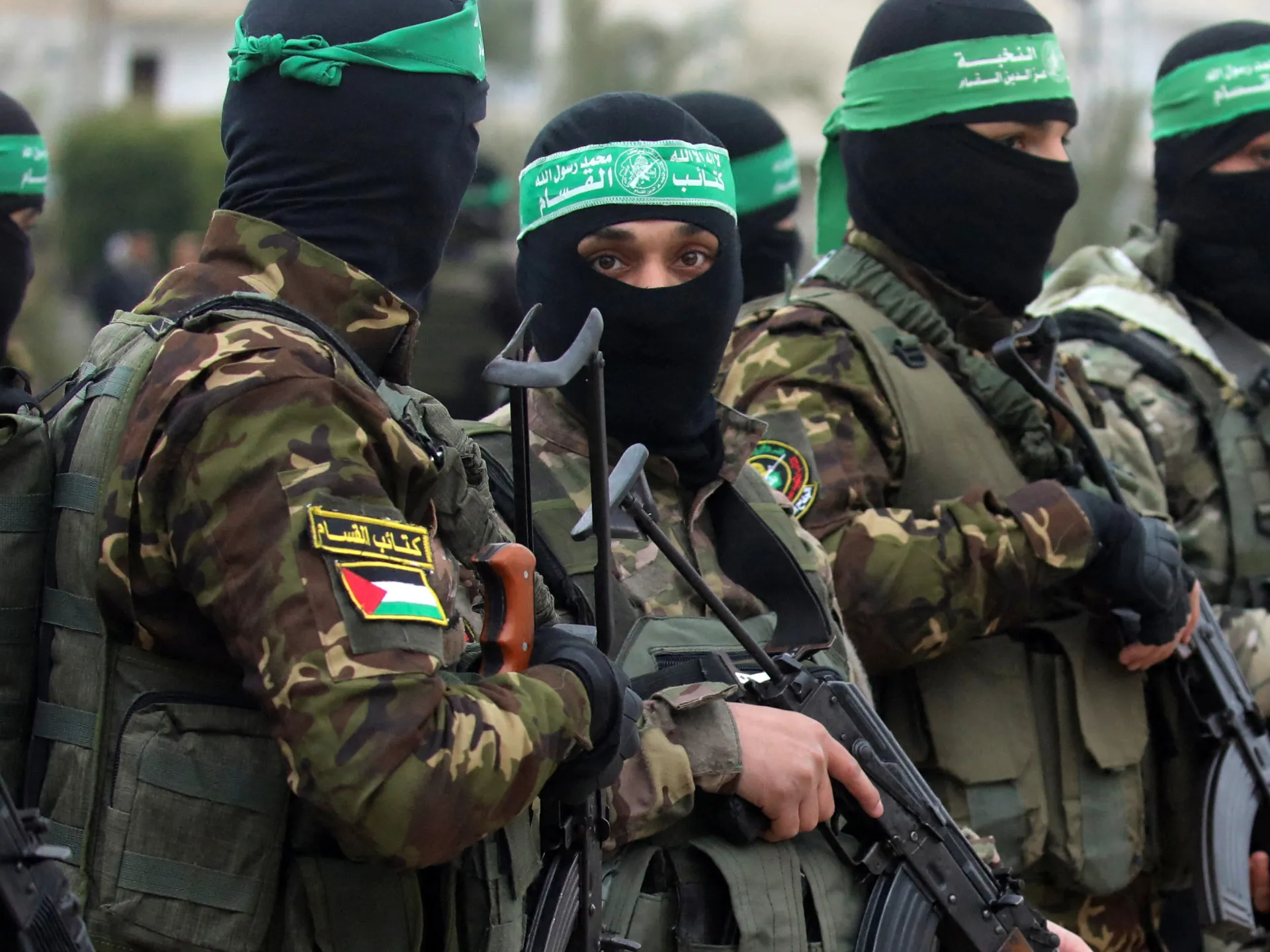A week into the ceasefire, Israel has continued to seal Gaza’s Rafah crossing with Egypt despite repeated international calls to allow in large-scale aid deliveries. Meanwhile, Israeli attacks killed and wounded several Palestinians in northern Gaza.
For several days, the United Nations has warned that there has been little progress in aid deliveries into Gaza and that assistance must enter at scale through all border crossings to meet urgent humanitarian needs. Under the deal to end Israel’s genocide, which has killed more than 67,000 Palestinians in two years, Israel was to allow for a surge in aid deliveries.
Recommended Stories
list of 3 itemsend of list
The UN said on Friday that aid convoys were struggling to reach famine-hit areas of northern Gaza due to bombed-out roads and the continued closure of other key routes – Zikim and Beit Hanoon (called Erez in Israel) – into the enclave’s north.
The World Food Programme (WFP) said it has brought an average of 560 tonnes of food per day into Gaza since the ceasefire began last week, but the amount is still below what is needed. The UN agency said it has enough food to feed all of Gaza for three months.
UN humanitarian affairs chief Tom Fletcher said this week that thousands of aid vehicles would have to enter weekly to tackle widespread malnutrition, displacement, and a collapse of infrastructure.
“We’re still below what we need, but we’re getting there … The ceasefire has opened a narrow window of opportunity, and WFP is moving very quickly and swiftly to scale up food assistance,” WFP spokesperson Abeer Etefa told a news briefing in Geneva.
But the WFP said it had not begun distributions in Gaza City, pointing to the continued closure of Zikim and Beit Hanoon, with Israeli forces remaining in the north of the enclave where the humanitarian crisis is most acute.
As part of the US-brokered ceasefire deal, which calls for their gradual withdrawal, Israeli forces remain in approximately 53 percent of Gaza.
“Access to Gaza City and northern Gaza is extremely challenging,” Etefa said, adding that the movement of convoys of wheat flour and ready-to-eat food parcels from the south of the territory was being hampered by broken or blocked roads.
“It is very important to have these openings in the north; this is where the famine took hold. To turn the tide on this famine … it is very important to get these openings.”
Global medical charity Doctors Without Borders, known by its French initial MSF, said many relief agencies had not fully returned to the north, where hospitals are barely functioning, leaving many still unable to access regular care.
More Palestinians killed
As calls for much-needed aid continue, Israeli attacks on Palestinians in Gaza have also gone on unabated.
Gaza’s civil defence said its teams are carrying out rescue operations after an Israeli artillery strike hit a small bus carrying a displaced family who were heading to inspect their homes east of Gaza City’s Zeitoun neighbourhood.
The attack caused “several deaths and injuries”, the agency said. One injured boy was rescued, while the fate of the others remains unknown “due to the danger at the site” as attempts to reach the area continue.
Separately, three Palestinians were injured, with varying severity, after Israeli forces opened fire towards them in southern Gaza’s Khan Younis, the Wafa news agency reported.
Meanwhile, Hamas insisted it was committed to returning the remains of Israeli captives still unaccounted for under Gaza’s ruins. The group’s armed wing said it has handed over all the bodies it was able to recover, adding that returning more remains would require allowing heavy machinery and excavation equipment into Gaza, much of which has been reduced to rubble by Israeli bombardment.
Al Jazeera’s Hani Mahmoud, reporting from Gaza City, said there is “a clear disconnect” from what the Israeli government is demanding from an area that has been “reduced to rubble”.
With heavy equipment and machinery being blocked by the Israeli military, Israel is creating “a challenge for the residents of Gaza who are experienced and have the expertise to search and to dig out bodies from under the rubble,” Mahmoud said.
He noted that it is not just the bodies of deceased Israeli captives under the rubble, it is the “thousands of Palestinian bodies buried and missing and trapped under tonnes and tonnes of rubble and debris”.
Authorities in Gaza have also been struggling to identify dozens of bodies of slain Palestinians that were returned by Israel earlier this week. Only six out of 120 bodies have been formally identified so far, according to the Health Ministry.
The ministry said the bodies exhibit signs of torture, including hanging and rope marks, bound hands and feet, and gunfire at close range.
The bodies showed “conclusive evidence of field executions and brutal torture”, Gaza’s Government Media Office said.
Hamas disarmament
The next phases of the truce are expected to address the disarmament of Hamas, possible amnesty for its leaders who lay down their weapons, and the question of who will govern Gaza after the war.
Hamas politburo member Mohammad Nazzal said the group intends to maintain security control in Gaza during an interim period, adding that he could not commit to disarmament.
He told the Reuters news agency Hamas was prepared for a ceasefire lasting up to five years to allow for the reconstruction of Gaza, provided Palestinians are offered “horizons and hope” towards statehood.
Asked whether Hamas would give up its weapons, Nazzal replied, “I can’t answer with a yes or no. Frankly, it depends on the nature of the project. The disarmament project you’re talking about – what does it mean? To whom will the weapons be handed over?”
He added that any discussion about weapons would not concern Hamas alone but also other armed Palestinian factions, and would require a collective Palestinian position in the next round of negotiations.
